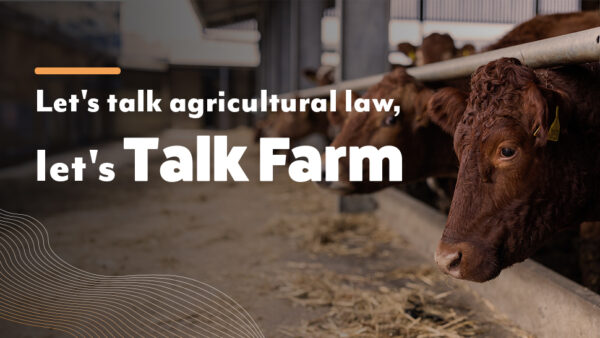

Keeping Children Safe in Education 2023 (‘KCSIE’) was released on 6 June 2023, and will come into force from 1 September 2023. There has been no consultation period this year as it was anticipated that any changes would be minimal. KCSIE 2023 can be accessed here.
KCSIE applies to all schools and colleges and is for headteachers, teachers, staff, governing bodies, proprietors and management committees. The guidance sets out the duties you must legally follow to safeguard and promote the welfare of children and young people under the age of 18 in schools and colleges.
We have produced two additional detailed notes to sit alongside this overall summary of KCSIE to reflect the changes which are likely to require attention from schools. These additional notes cover changes made to the ‘Use of school premises for non-school activities’ and also ‘Filtering and monitoring procedures’ and related training in light of the recently published DfE standards in this area. More on this below.
Part one – Safeguarding information for all staff
- A link has been added to the updated ‘Behaviour in schools guidance’
- The requirements in relation to safeguarding and child protection training all staff should receive has been updated to include in ‘online safety’ training and understanding of the expectations, applicable roles, and responsibilities in relation to filtering and monitoring. This includes the leadership team and relevant staff having an awareness and understanding of the provisions in place and how to manage them effectively and to know how to escalate concerns when identified.
Part two – The management of safeguarding
- New wording added in respect of schools’ duties under the Equality Act 2010 including the duty to make reasonable adjustments for disabled children and young people.
- Clarification that the DSL should take lead responsibility for online safety which includes understanding the filtering and monitoring systems and processes in place.
- Update to staff training requirements to ensure that staff training on online safety includes an understanding of the expectations, applicable roles and responsibilities in relation to filtering and monitoring.
- Requirement for schools’ child protection and safeguarding policy to be updated in relation to online safety to include reference, amongst other things, to appropriate filtering and monitoring on school devices and school networks.
- A new section has been added at paragraph 142 referencing the newly published DfE filtering and monitoring standards. The standards, which can be found here, support schools meet their duty to have appropriate and effective filtering and monitoring systems in place. Governing bodies should review the standards and discuss with IT staff and service providers what more need to be done to support schools and colleges in meeting these standards. This is not a new burden.
- Update to security protection procedures. Schools should consider meeting the cyber security standards for schools and colleges. These standards can be found here.
- References have now been added to the DfE guidance ‘Keeping children safe in out-of-school settings’. This guidance details the safeguarding arrangements that schools and colleges should expect external providers to have in place.
- The section ‘Children missing from education’ has been changed to ‘Children who are absent from education’ and this is reflected throughout KCSIE 2023. New wording has been added to this section to provide a distinction between children missing education and children absent from education. In the case of persistently absent pupils a school’s response helps prevent the risk of them becoming a child missing education in the future.
- Additional DfE guidance on school attendance ‘Working together to improve school attendance’ (May 2022) has been added. This includes information on how schools should work with local authority children’s services where school absence indicates safeguarding concerns.
- Wording has been added to paragraph 178 to clarify that, in the case that a parent has expressed an intention to remove a child from school with a view to home educate and the child has an EHCP, the local authority will need to review the plan, working closely with parents and carers.
- Additional signposting has been added at paragraph 202 to specialist organisations for children with special educational needs and disabilities.
Part three – Safer recruitment
- Clarification that schools should inform shortlisted candidates that online searches may be done as part of due diligence checks.
- The section on ‘Retention of Documents’ (paragraphs 276-277) has been re-ordered to flow better. No changes have been made to the content.
Part four – Safeguarding concerns or allegations made about staff, including supply teachers, volunteers and contractors
- A new paragraph has been added under the heading ‘Organisations or individuals using school premises’ at paragraph 377. New wording here confirms that in instances when schools receive an allegation relating to an incident that happened when an individual or organisation was using their school premises for the purposes of running activities for children – for example community groups, sports associations, or service providers that run extra-curricular activities – they should follow their safeguarding policies and procedures, including informing the LADO.
- The requirement for schools and colleges to preserve records which contain information about allegations of sexual abuse for the Independent Inquiry into Child Sexual Abuse (IICSA) has been removed.
Part five – Child-on-child sexual violence and sexual harassment
- Throughout the guidance wording has been amended to reflect the updated behaviour guidance (September 2022). Any references to ‘discipline’ have either been removed or replaced with ‘sanction’.
Annex A – Safeguarding information for school and college staff
- Revised to reflect changes in Part one, i.e. the requirement for staff to receive appropriate safeguarding and child protection training which includes, as part of online safety training, an understanding of the expectations, applicable roles and responsibilities in relation to filtering and monitoring.
- The section ‘What school and college staff should do if they have a safeguarding concern or allegation about another staff member who may pose a risk of harm to children’ has been updated to confirm that, if the allegation relates to the headteacher or principal, staff should speak to the chair of governors, chair of the management committee, or the proprietor of an independent school.
Annex B – Further information
- The section on children who are absent from education has been revised to reflect the difference between children absent from education and children missing education.
- The section on forced marriage has been updated to reflect the change in law from February 2023. This made it a crime to carry out any conduct whose purpose is to cause a child to marry before their eighteenth birthday, even if violence, threats or another form of coercion are not used. As with the existing forced marriage law, this applies to non-binding, unofficial ‘marriages’ as well as legal marriages.
- Preventing radicalisation wording has been amended to from ‘Children are vulnerable to extremist ideology and radicalisation’ to ‘Children may be susceptible to extremist ideology and radicalisation’.
- New references to multi-agency practice principles have been added in relation to child exploitation.
Action for schools
In light of the KCSIE 2023 updates schools should:
- Undertake a review of their filtering and monitoring procedures and related training in light of the recently published DfE standards in this area. This should not solely be the responsibility of your school’s IT provider. The DSL needs to have a lead role and there needs to be clear procedures to respond to any issues.
Schools should also consider ensuring that any cyber security measures in place are robust and appropriate. Schools will need to ensure that all staff understand their responsibilities in this regard. For more information on this please see our separate advice note ‘Filtering and Monitoring in Schools’
- Review and update their Child Protection and Safeguarding Policy and Pupil Behaviour Policies as well as other relevant school policies to ensure:
a. The procedure for responding to safeguarding concerns about other organisations and individuals using your school’s site is clearly set out. This should also be included in any lettings policy and hirings contracts where appropriate. For more information on this please see our separate advice note ‘Use of school premises for non-school activities’.
b. Any attendance policies are clear about the safeguarding risks for children absent or missing from school, including those absent on repeat occasions and/or for prolonged periods.
c. The requirement for staff safeguarding and child protection training is updated to include, within online safety training, an understanding of the expectations, applicable roles, and responsibilities in relation to filtering and monitoring.
d. Update their Child Protection and Safeguarding Policy to reflect other KCSIE 2023 changes set out above including, within the section covering forced marriages, that any form of marriage for someone under 18 is illegal, even where violence, threats or another form of coercion are not used.










